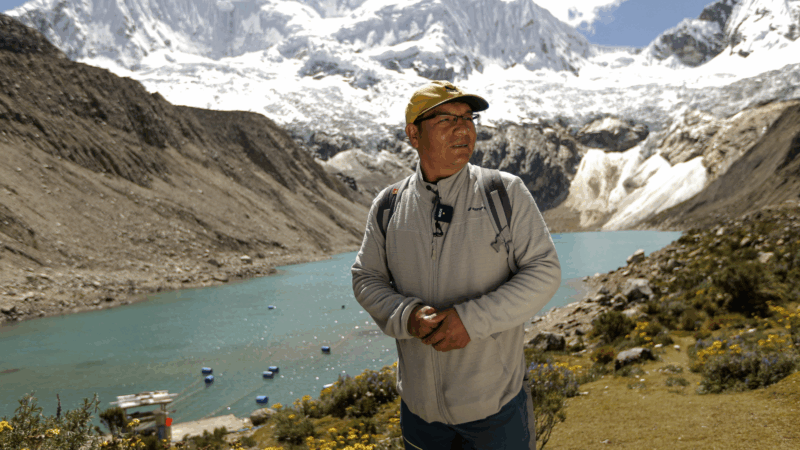Peruvian farmer loses landmark climate case against German energy giant
LIMA, Peru — A Peruvian farmer and mountain guide has lost a landmark climate change lawsuit against one of Europe’s largest power companies.
Saúl Luciano Lliuya, who lives in a city in the central Ancash region, in the heart of the Andes, sued RWE, one of Europe’s largest emitters of greenhouse gases, over the risk of flooding to his home from a glacial lake swollen by climate change. Although RWE has never operated in Peru, Luciano Lliuya argued the company’s emissions contributed to the melting glaciers threatening his city.
But a court in Hamm, in northwestern Germany, ruled that the probability of the lake bursting its banks and devastating his home and the homes of some 50,000 other people in the area was too small for RWE to be held liable. It also barred him from appealing the verdict.
The ruling brings to an end a decade-long lawsuit in which Luciano Lliuya, supported by environmental group Germanwatch, had sought roughly $18,000 from RWE to pay for 0.5% of the cost of building a dyke to protect his home and the homes of his neighbors – the percentage equal to the proportion of RWA’s total historic carbon emissions according to Germanwatch.
The company is now moving quickly into renewable energy and vows to become carbon neutral by 2040. But its power plants have been running on coal for more than a century.
Germanwatch warned that Lake Palcacocha had swollen to more than 30 times its historic volume and could overflow catastrophically in the event of an avalanche.
Ultimately, the court ruled that the probability of that happening was just over 1% in the next 30 years, below the threshold under German law for RWE to be found liable.
The German energy giant had argued that the issue of climate change should be resolved by governments and not in a court. In a statement after the verdict on Wednesday, RWE said a win against them would have had “unforeseeable consequences for Germany as an industrial location, because ultimately claims could be asserted against any German company anywhere in the world for damage caused by climate change.”
This is just one of a wave of climate litigation cases against big industry and governments in recent years. Germanwatch is still claiming a win. It says that the court ruled on the specific risk of Lake Palcacocha bursting its banks. But, by allowing the case to proceed through the German court system for a decade, had accepted the broader principle that climate change plaintiffs from around the world can use German property laws to sue German companies over their carbon emissions.
Petra Minnerop, an expert in international climate law at the United Kingdom’s Durham University, who was not involved in the case, broadly backed Germanwatch’s interpretation. “It was only a factual question, not a legal one,” she told NPR, meaning that the door remained open for similar litigation in Germany.
March for Life attendees may have been exposed to measles, DC Health warns
D.C. health officials are contacting people possibly exposed to measles at the March for Life in January, as confirmed cases rise nationwide.
U.S. gave Ukraine and Russia June deadline to reach peace agreement, Zelenskyy says
"The Americans are proposing the parties end the war by the beginning of this summer," Zelenskyy said, speaking to reporters on Friday.
U.K. leader’s chief of staff quits over hiring of Epstein friend as U.S. ambassador
British Prime Minister Keir Starmer's chief of staff resigned Sunday over the furor surrounding the appointment of Peter Mandelson as U.K. ambassador to the U.S. despite his ties to Jeffrey Epstein.
Trump administration lauds plastic surgeons’ statement on trans surgery for minors
A patient who came to regret the top surgery she got as a teen won a $2 million malpractice suit. Then, the American Society of Plastic Surgeons clarified its position that surgery is not recommended for transgender minors.
What you should know about Bad Bunny’s Super Bowl halftime show
Will the Puerto Rican superstar bring out any special guests? Will there be controversy? Here's what you should know about what could be the most significant concert of the year.
Sunday Puzzle: -IUM Pandemonium
NPR's Ayesha Rascoe plays the puzzle with KPBS listener Anthony Baio and Weekend Edition Puzzlemaster Will Shortz.








